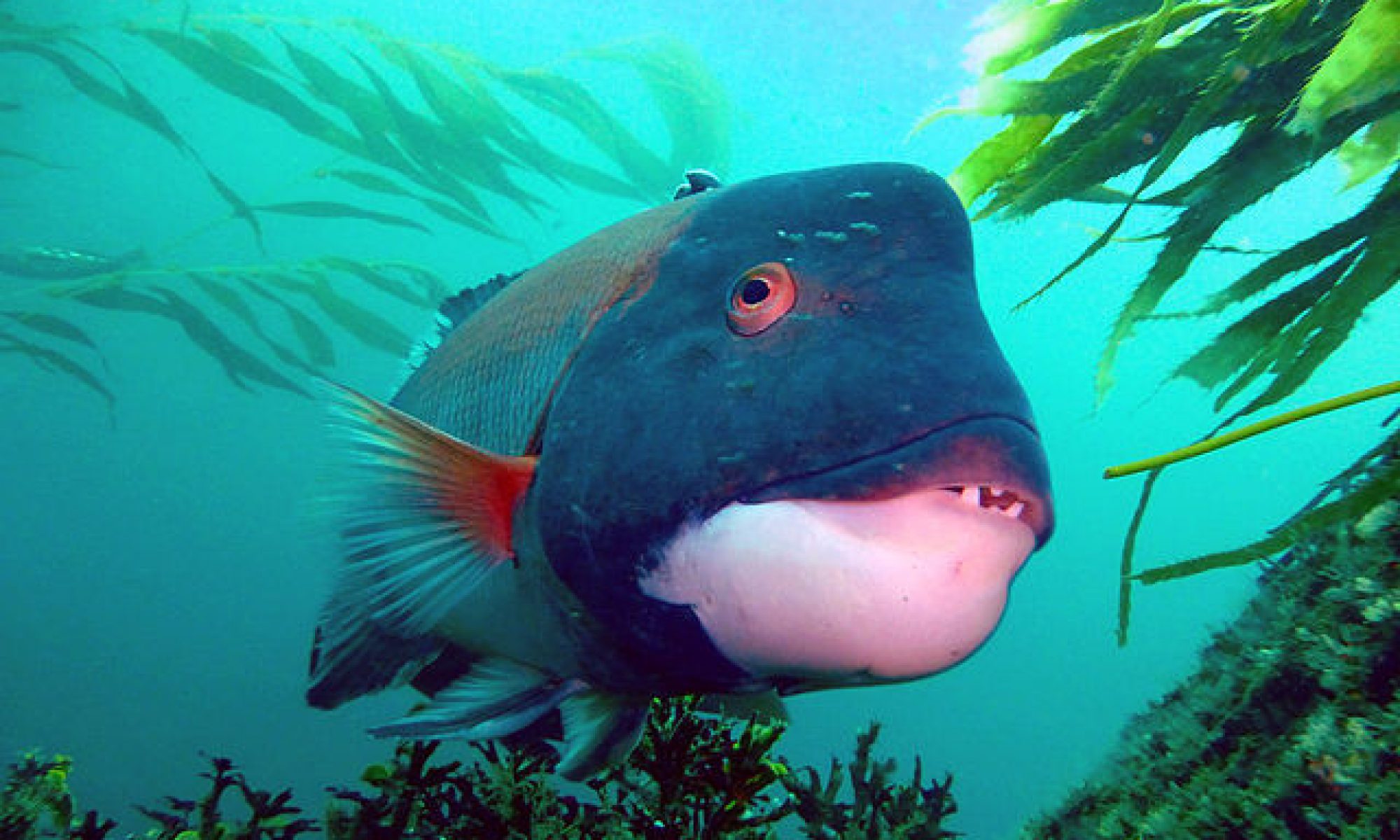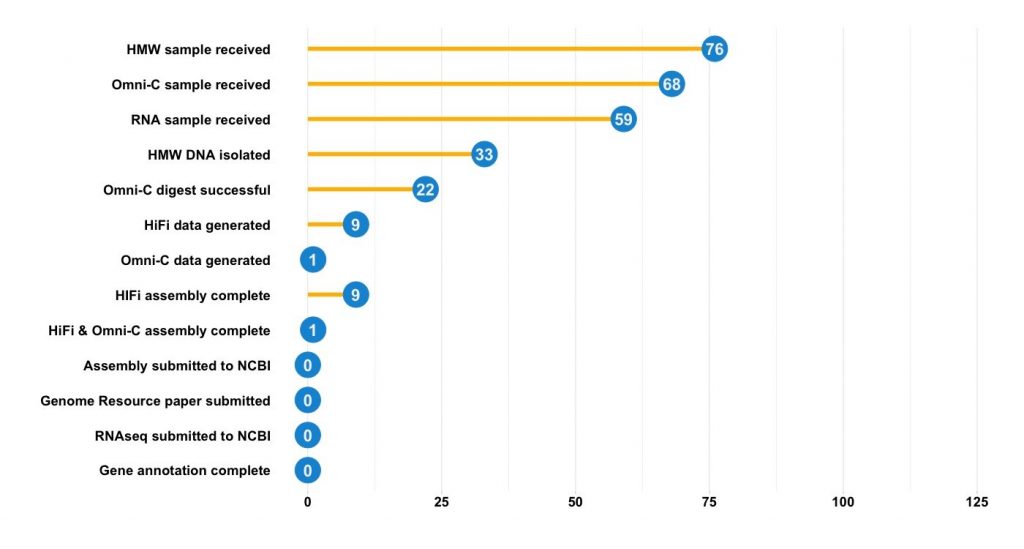Schiebelhut, L.M., M.B. DeBiasse, L. Gabriel, K.J. Hoff, M.N. Dawson (2023) A reference genome for ecological restoration of the sunflower sea star, Pycnopodia helianthoides, Journal of Heredity, https://doi.org/10.1093/jhered/esad054
Wildlife diseases, such as the sea star wasting (SSW) epizootic that outbroke in the mid-2010s, appear to be associated with acute and/or chronic abiotic environmental change; dissociating the effects of different drivers can be difficult. The sunflower sea star, Pycnopodia helianthoides, was the species most severely impacted during the SSW outbreak, which overlapped with periods of anomalous atmospheric and oceanographic conditions, and there is not yet a consensus on the cause(s). Genomic data may reveal underlying molecular signatures that implicate a subset of factors and, thus, clarify past events while also setting the scene for effective restoration efforts.

